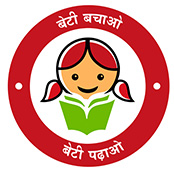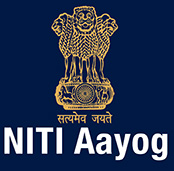New National Curriculum Framework should focus on improving learning outcomes
In September 2021, the Union Ministry of Education constituted a 12-member national steering committee to develop a new National Curriculum Framework (NCF) in line with the National Education Policy 2020 (NEP). The National Curriculum Framework has far-reaching impact as it serves as a guideline for designing syllabus, textbooks, and informs teaching practices in the country. India is currently following the fourth National Curriculum Framework which was published by the National Council for Educational Research and training (NCERT) in 2005. A lot has changed in 16 years. There is an emergence of new avenues where jobs are being created, and an entirely new set of demands are being made by the job market. For example, India is experiencing a tech boom, which has placed demand for skilled professionals in coding, big data, and artificial intelligence. India’s new economy is built on technical expertise.
As the national steering committee sets out to decide the contours of the new national curriculum framework, it should prioritize a dramatic increase in learning outcomes of Indian students. More than 65% of children in India study in government-run schools. India’s education sector is one of the world’s largest, with 1.5 million schools, more than 9.6 million teachers and more than 264 million children. We have come a long way in improving enrolment rates across the country and the focus should now be on students’ learning outcomes. The endeavor should be to achieve improved basic reading and math skills, which are foundational to learning. Improved learning outcomes in the elementary stages stay with students throughout their lives, opening new opportunities for success. Even in higher education, the effort must be to improve overall retention of concepts and to encourage their application.
A large part of the solution lies in the way curriculum is designed and in suitably altering the techniques employed to teach. India battles a deficit of teachers, and the quality of education delivery can make a huge difference to students’ learning. Undoubtedly, National Education Policy 2020’s focus on multidisciplinary education and early-age skilling is laudable. The introduction of subjects like artificial intelligence, financial literacy and data science in school curriculum indicates policymakers’ intent to upgrade our education system to meet the fast-changing demands of the job market. However, improving learning outcomes must underpin reform in education. We must reform pedagogy, for example by effecting a shift from learning by rote to improving knowledge retention by advocating practical application as stated in NEP 2020. The national steering committee for the new National Curriculum Framework must endeavor to effect a decisive shift from education for all to quality education for all.
Thanks to their deep involvement in the way education is administered, state governments will have a big role to play in enabling this shift. Some states are implementing the National Education Policy 2020 in letter and spirit, working with intent to reform education. State governments in Karnataka, Madhya Pradesh, Uttar Pradesh, and Himachal Pradesh were quick to implement NEP 2020. The Madhya Pradesh state administration has even directed the state’s private university regulatory commission to closely monitor the effective implementation of NEP and to focus on the quality of education and its delivery. The state administration has made it clear that attention must be paid to improving existing courses, research, and innovation in the context of the NEP.
As state governments pursue reform in education, they must make concerted efforts to change the functioning of state education boards, redesign curriculum and be more open to work with sector experts and other external stakeholders to develop and embrace intuitive teaching techniques that increase student involvement in the learning process. Designing of the new national curriculum framework presents a great opportunity to put in place guidelines that enable the development of curriculum and teaching practices that excite students and ignite their imagination. The committee must consider enabling children to generate their own knowledge through subjective encounters with objective realities. That will help the new National Curriculum Framework drive transformational change in education, furthering the objectives of National Education Policy 2020.
Saloni Sachdeva, Young Professional, NITI Aayog. Views expressed above are the author's own.
 National Portal Of India
National Portal Of India 


